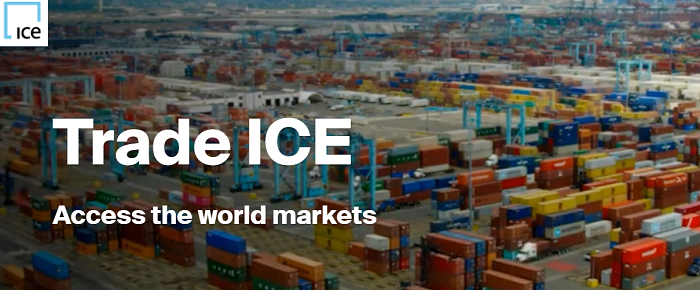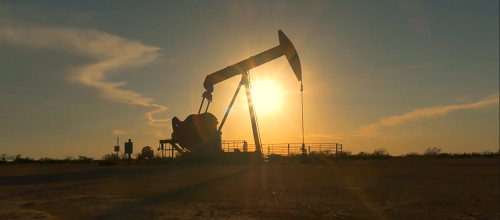Intercontinental Exchange

Course Information
Price: £1,600 + VAT
Duration: 4 days
Location: Virtual
Available Dates: July 07, 2020 BST
Summary

Day One:
Session 1: LNG Background
Explores the background to the global LNG business and why it exists. The introductory session will include a look at some of the key measurements and terminology and the players involved in the LNG business.
Session 2: LNG Supply and Demand
Looking at the current trends and supply and demand influences on the markets. This section will look at the key producers of LNG and the markets that buy the liquified commodity. The session examines the current market dynamics and try to assess how the markets may evolve in the short term.
Session 3: LNG Value Chain
Delegates will be given an overview of the key parts of the value chain from liquefaction to regasification to gain an understanding of the possible opportunities and limitations of LNG as a commodity and its unique part in the energy mix.
Day Two:
Session 4: LNG Pricing
LNG is a global commodity and therefore has different pricing mechanisms across the world. Attendees will be given an overview of some of the more common mechanisms used in different markets and gain an appreciation of the differences, as well as the opportunities and risks this may create.
Session 5: Trading Simulation
The first visit to the trading simulation will introduce the delegates to basic trading tasks, identifying simple strategies through a number of stylised scenarios to understand the influences of different price drivers.
Session 6 LNG Trading and Market Risks
Delegates will get a thorough understanding of the risks behind the physical purchase and delivery of LNG cargoes including the risks posed by different pricing mechanisms in the global market. The session seeks to give the attendees an awareness of the consequences of entering into trades without the correct due diligence.
Day Three:
Session 7: LNG Contracts
The opening session of the second day will be used to look at the key contracts that are used in the global LNG business. It will establish some of the reasons behind certain commercial clauses in the different contracts and how these mitigate some of the risks highlighted in session seven.
Session 8: LNG Trading
Delegates will be taken through the key trading and marketing opportunities for LNG players. This section explores the drivers for trade. It will outline the opportunities available to LNG traders and marketeers including arbitrage, physical swaps and storage and redelivery.
Session 9: LNG Price Risk Management
This session will look at the hedging techniques used to manage the price risks in the key markets for LNG. Delegates will learn how to use both physical and financial markets to lock in return for deliveries in Gas to Gas markets as well as the requirements needed to hedge oil indexed contracts. The session will also look at spread trades between the US and other markets.
Day Four:
Session 10: Optimising LNG Deliveries
Delivery optimisation is one technique to increase margins across an LNG portfolio. Taking into account the practical risks described in session six, this session will look at redelivery metrics and the possibility of cargo swaps.
Session 11: Trading Simulation
The second visit to the simulation will build on the previous simulation session and will introduce some more complex strategies using derivatives to maintain or improve margins.
Session 12: The Future for LNG
The final session looks to the long term future of the LNG industry and both the developments of new demand and the prospects for future supply. The final session will look at the current thinking and how that may affect the future of the industry.
Register
Sign up and receive Oahu Discounts or Rebates (where eligible). Get personal assistance with our CTA program.
Intercontinental Exchange

Course Information
Price: £250 + VAT
Duration: 1 days
Location: Virtual
Available Dates: Jun 10, 2020
Summary

2nd Module of 3:
Join our 2 hour live instructor led virtual course provides an introduction to what hedging is, why it's used and some common trading approaches.
This is the second in a series of three courses that makes up our 'Introduction to Futures & Options' pathway.
The other two modules in the series are: - Introduction to Futures & the Clearing Process - Introduction to Options On completion of all three sections, you can take an assessment towards pathway Certification.
Register
Sign up and receive Oahu Discounts or Rebates (where eligible). Get personal assistance with our CTA program.
Intercontinental Exchange

Course Information
Price: £1,600 + VAT
Duration: 2 days
Location: London
Available Dates: Sep 10 2020
Summary

An intense two days cover a multitude of topics designed to provide a thorough knowledge of the European natural gas markets, highlighting the key relationships and interdependencies throughout the traded gas markets in Western Europe.
Day 1 - is designed to look at the background and mechanics of traded markets answering the questions of: Why do we trade and what influences gas prices?
Day 2 - looks in detail and how to hedge and optimise portfolios with a detailed look at supply contracts, LNG and gas storage to give the participants the understanding of the tools that are used by traders to capture value and manage risks. The course makes use of interactive trading simulation exercises to reinforce the points learned and to develop new skills that can be used back in the workplace.
While taking the course let the Oahu's Structured Product Division help you create professional risk management strategies that are tailored to meet the hedging requirements of your business. Oahu's CTA Advisory uses OTC like products to create hedging portfolios specific to the customers’ needs. Gain insight and use professional experience to manage price risk on Energy and Fertilizer, Metals, Grains, FX and Oilseeds.
Register
Sign up and receive Oahu Discounts or Rebates (where eligible). Get personal assistance with our CTA program.